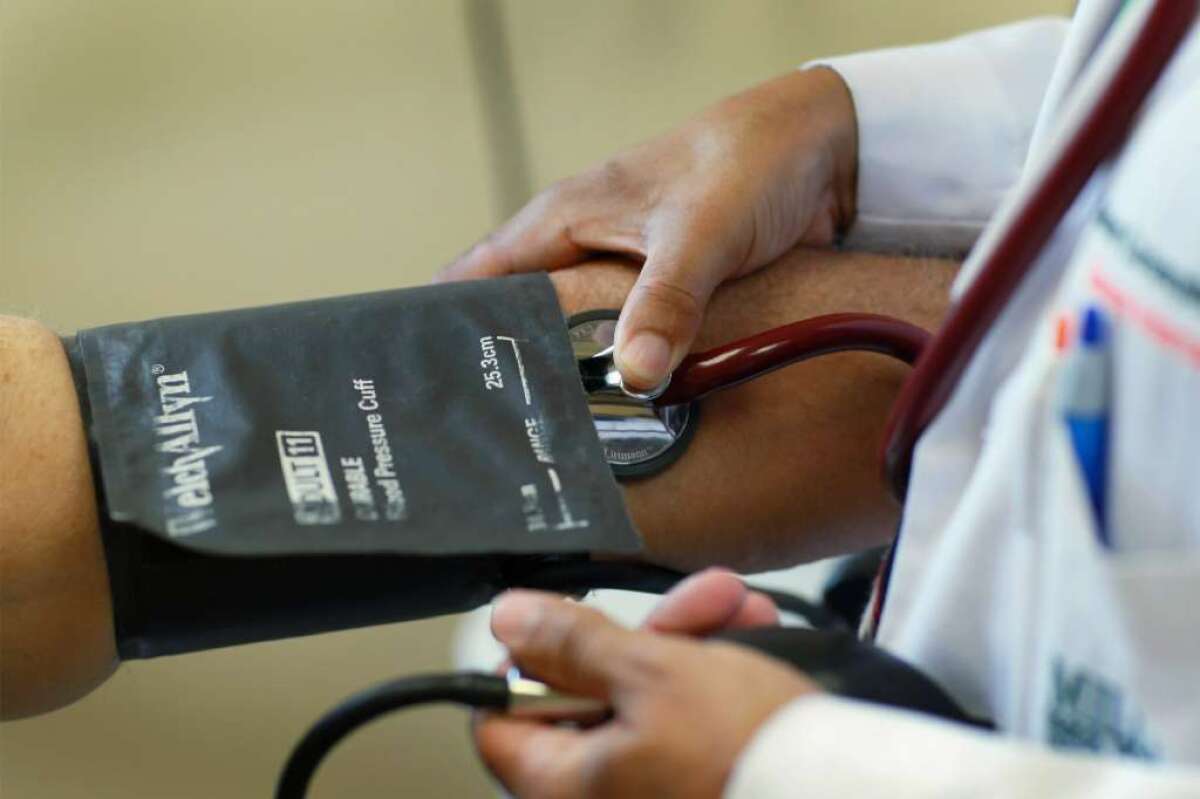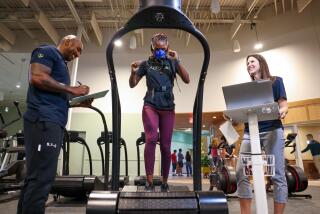Rx for soaring health costs: Give more Americans a ‘purpose in life’

- Share via
Researchers have an unconventional idea for reducing medical costs in the U.S.: Give more Americans a sense of purpose.
You see, people who believe their lives have purpose are motivated to optimize their health. That means they’re more likely than other folks to take advantage of preventive health services, like cancer screenings. And people who take advantage of preventive healthcare save the medical system big bucks.
Americans spent about $2.8 trillion on healthcare in 2012, according to the most recent tally by the federal Center for Medicare & Medicaid Services. The U.S. Census Bureau projects that the number of senior citizens will double by the year 2050, and that means the nation’s medical bills are bound to grow.
In a new study, researchers from the University of Michigan and the University of Wisconsin suggest that “these troublesome realities could be offset by greater use of preventive health care services, which are known to enhance health and reduce health care costs.” Americans certainly have room for improvement on that score. Studies have shown that fewer than half of senior citizens take advantage of preventive health services, along with only one-quarter of middle-aged adults between the ages of 50 and 64, the researchers note.
The study authors wondered whether it would be possible to boost those figures by increasing the number of Americans who think they have a purpose in life, defined as “having meaning, a sense of direction and goals to live for.”
It may sound far-fetched, but epidemiologists have found that people with purpose are less likely to have a heart attack or stroke, or to develop Alzheimer’s disease. They’re also more likely to live longer than other adults.
To find out whether preventive care had any role in this, the researchers turned to the Health and Retirement Study, which tracks a representative sample of American adults older than age 50. Some of the study participants answered seven questions designed to measure the extent to which they felt they had a purpose in life. The volunteers were asked to use a six-point scale to indicate how strongly they agreed or disagreed with statements like, “I have a sense of direction and purpose in my life,” and “My daily activities often seem trivial and unimportant to me.” The responses to the seven questions were averaged into a single score, which was between 1 and 6.
The study authors then compared the scores of 7,168 people with their use of various preventive health services. After controlling for demographic factors like wealth, education and marital status (which might skew the results), they found that having a purpose in life was indeed correlated with greater use of preventive care.
For instance, for each one-point increase in the “sense of purpose” score, the likelihood of getting one’s cholesterol checked rose by about 18% and the odds of having a colonoscopy rose by about 6%, the researchers found. Among women, those who believed their lives had a sense of purpose were 27% more likely to have had a screening mammogram (to check for breast cancer) and 16% more likely to have a pap smear (to check for cervical cancer). Among men, having a sense of purpose increased the odds of getting a prostate exam by 31%.
If these screening tests were helping, then the people who were getting them should be spending less time in the hospital. And indeed, that’s what the researchers found. Over a six-year period, the average number of nights each study volunteer spent in a hospital was 7.21. But it wasn’t the same for all of the 7,168 volunteers. For each one-point increase in “sense of purpose,” the number of nights spent in a hospital fell by 17%.
There was one exception to the overall narrative: people with a greater sense of purpose were no more likely than their counterparts to get flu shots. The researchers weren’t sure why flu shots didn’t fit the pattern, but they speculated that flu shots could have been under-reported if study volunteers only counted the ones received at their doctors’ offices and not flu shots given at their offices, in community centers, at church or in other settings.
Even with this uncertainty, the idea of boosting preventive healthcare by boosting people’s sense of purpose is worth pursuing, according to the researchers.
“Several promising interventions have shown that purpose, along with other facets of psychological well-being, can be improved for greater segments of the population,” they wrote. For instance, “early randomized controlled trials have shown that a meaning-centered therapy ... can help raise meaning and purpose in life among people with cancer.”
The study was published online Monday in the Proceedings of the National Academy of Sciences.
Looking to get more out of life? Follow me on Twitter @LATkarenkaplan and “like” Los Angeles Times Science & Health on Facebook.







